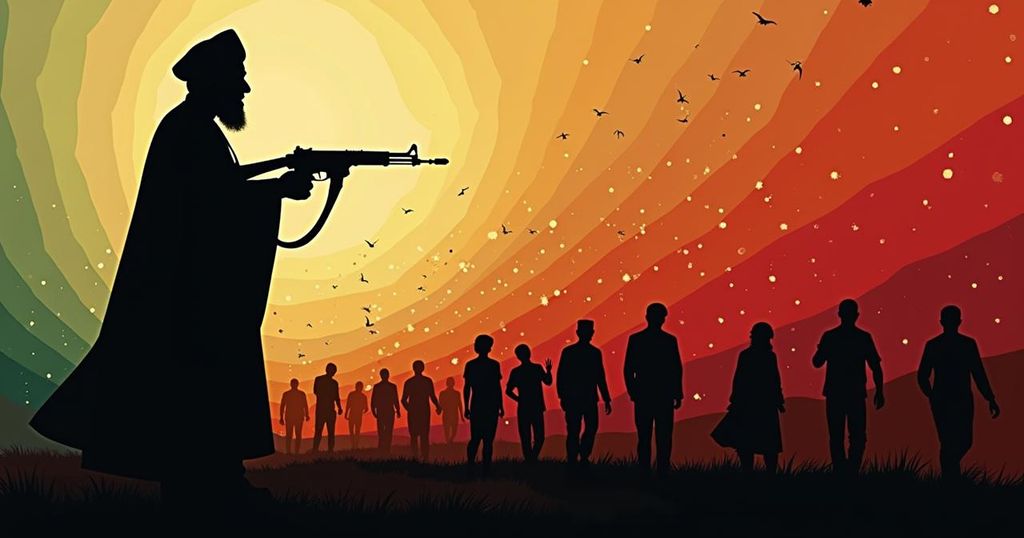The assassination of Hezbollah leader Hassan Nasrallah by Israel could lead to a significant escalation in the conflict, potentially involving Iran and the US. Hezbollah may retaliate, aiming for revenge despite recent losses, while Iran’s response remains uncertain but could involve allied militias. Israel is likely to continue its military offensive, seeking to neutralize Hezbollah’s threats, but may be drawn into a larger conflict if retaliatory actions escalate.
The assassination of Hassan Nasrallah, the long-time leader of Hezbollah, represents a significant escalation in Israel’s conflict with the Lebanese militant faction. This event amplifies the potential for a broader regional confrontation, potentially involving Iran and the United States. The trajectory of this situation hinges on the actions and reactions of three primary stakeholders: Hezbollah, Iran, and Israel. Hezbollah is currently facing severe repercussions from recent military operations, having suffered the loss of numerous commanders and significant structural damage to its organization. Security analyst Mohammed Al-Basha highlights that the assassination will likely destabilize Hezbollah and necessitate a shift in its strategies. Nevertheless, Hezbollah remains resolute in its hostility toward Israel, and the group still boasts a substantial fighting force and a considerable missile stockpile. The imperative for revenge may provoke Hezbollah to launch attacks, which could then elicit a fierce retaliatory response from Israel, potentially resulting in extensive infrastructural damage across Lebanon and possibly engaging Iran in the conflict. On the Iranian front, the murder of Nasrallah is perceived as a critical blow to its influence in the region. Following the incident, Iran declared five days of mourning and heightened security measures for its leadership. The Iranian regime may contemplate utilizing its network of allied militias, part of what is referred to as the “Axis of Resistance,” to intensify assaults on both Israeli and U.S. interests. However, it is anticipated that Iran will carefully calibrate its response to avoid igniting an unwinnable conflict. Israel’s decision-making post-assassination indicates an unwavering commitment to its military agenda against Hezbollah. The Israeli leadership remains determined to continue its offensive rather than acquiescing to calls for a ceasefire. With military assessments suggesting that Hezbollah is vulnerable, Israel may escalate its military operations. However, a comprehensive victory over Hezbollah would likely require ground troop deployment, which poses significant risks and operational challenges reminiscent of past engagements, such as the conflict in Gaza. The current dynamics indicate a precarious situation whereby each actor’s next moves could potentially exacerbate an already volatile region.
The article centers on the escalating conflict between Israel and Hezbollah following the assassination of Hassan Nasrallah, highlighting the strategic implications for all three key players: Hezbollah, Iran, and Israel. The article analyzes the immediate aftermath of the assassination, emphasizing the potential for retaliatory actions and broader regional instability. It discusses the structural challenges Hezbollah faces, including leadership loss and the necessity for a military response, while also examining Iran’s potential reaction and Israel’s strategic intents. This context is essential to understanding the high-stakes environment in which these actors operate, especially considering their historical enmity and intertwined interests.
In conclusion, the assassination of Hassan Nasrallah marks a pivotal moment in the ongoing conflict, setting the stage for potential escalation involving Hezbollah, Iran, and Israel. Hezbollah’s vow to retaliate and Iran’s strategic considerations will influence the immediate future of the region. Israel’s aggressive military posture suggests that it will not back down, potentially leading to further conflict that could destabilize the broader Middle East. The interactions among these three parties will dictate whether the situation escalates toward warfare or whether diplomatic avenues may emerge amid rising tensions.
Original Source: www.bbc.com






